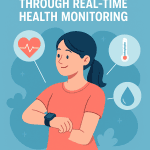This article is for informational purposes only and is not a substitute for professional medical advice. Always consult a healthcare provider for concerns about sleep and mental health.
The Intricate Connection Between Sleep and Mental Health
Sleep is not just a time for our bodies to rest; it is a critical period for our minds to rejuvenate. Have you ever noticed how a good night’s sleep can leave you feeling refreshed and ready to tackle the day? Conversely, a restless night can leave you irritable and unfocused. The relationship between sleep and mental health is complex and significant, influencing our emotional state, cognitive functions, and overall well-being.
How Sleep Affects Mental Health
Research indicates that sleep and mental health are closely intertwined. According to the National Institutes of Health (NIH), sleep disturbances can exacerbate mental health issues such as anxiety and depression. For instance, individuals with insomnia are ten times more likely to develop depression compared to those who sleep well (NHS, 2021). This connection is not merely correlational; it is rooted in biological mechanisms that govern our emotional and psychological states.
Sleep Quality vs. Sleep Quantity
While many people focus on the number of hours they sleep, the quality of that sleep is equally important. Quality sleep involves going through multiple sleep cycles, including deep sleep and REM (rapid eye movement) sleep, which are crucial for emotional regulation and memory consolidation. A study published in Sleep Medicine Reviews found that poor sleep quality can lead to increased levels of stress and anxiety (Hirshkowitz et al., 2015). The depth of sleep affects neurotransmitter activity, particularly serotonin and dopamine, which play vital roles in mood regulation.
The Science Behind Sleep and Mental Health
Understanding the science behind sleep can shed light on its impact on mental health. During sleep, our brains process emotions and consolidate memories. This process is essential for emotional resilience. Lack of sleep can hinder this process, leading to heightened emotional reactivity and poor coping mechanisms. Neuroimaging studies have shown that sleep deprivation can alter brain function, particularly in areas responsible for emotional regulation, such as the amygdala and prefrontal cortex.
Cortisol and Stress
Sleep deprivation increases the production of cortisol, the stress hormone. Elevated cortisol levels can lead to a range of mental health issues, including anxiety disorders and depression. A study from the Journal of Clinical Psychiatry found that individuals with chronic sleep deprivation exhibited higher levels of anxiety and depressive symptoms (Hirshkowitz et al., 2015). This cycle of stress and poor sleep can create a feedback loop, where anxiety leads to sleep disturbances, which in turn exacerbates anxiety.
Common Sleep Disorders and Their Impact
Several sleep disorders can significantly affect mental health. Understanding these can help individuals recognize when they need to seek help.
Insomnia
Insomnia is characterized by difficulty falling or staying asleep. It can lead to a vicious cycle where anxiety about not sleeping leads to more sleepless nights. According to the CDC, about 35% of adults report insufficient sleep, which can contribute to mental health challenges (CDC, 2020). Insomnia can also manifest as a symptom of underlying mental health conditions, creating a complex interplay that can be challenging to untangle.
Sleep Apnea
Sleep apnea, a condition where breathing repeatedly stops and starts during sleep, can lead to fragmented sleep and daytime fatigue. This fatigue can exacerbate feelings of depression and anxiety. A study in the American Journal of Psychiatry found a strong correlation between untreated sleep apnea and increased symptoms of depression (Kapur et al., 2017). The intermittent hypoxia associated with sleep apnea can also lead to neuroinflammation, further impacting mental health.
Strategies for Improving Sleep Quality
Improving sleep quality can significantly enhance mental health. Here are some effective strategies:
Establish a Sleep Routine
Going to bed and waking up at the same time every day can help regulate your body’s internal clock. This consistency can improve both the quality and duration of sleep. Consider using an alarm clock that mimics sunrise to help signal your body when it’s time to wake up.
Create a Relaxing Sleep Environment
Your bedroom should be a sanctuary for sleep. Consider using blackout curtains, keeping the room cool, and minimizing noise. A calming environment can signal to your body that it’s time to wind down. Adding elements like essential oils (such as lavender) or calming sounds can further enhance relaxation.
Limit Screen Time Before Bed
The blue light emitted by screens can interfere with melatonin production, making it harder to fall asleep. Aim to turn off electronic devices at least an hour before bedtime. Instead of scrolling through your phone, consider reading a physical book or practicing relaxation exercises.
Mindfulness and Relaxation Techniques
Practices such as meditation, deep breathing, or gentle yoga can help calm the mind and prepare the body for sleep. A study published in JAMA Internal Medicine found that mindfulness meditation improved sleep quality among older adults (Ong et al., 2014). Techniques like progressive muscle relaxation can also be beneficial in reducing pre-sleep anxiety.
The Role of Nutrition and Exercise
What you eat and how you move can also impact your sleep quality. A balanced diet rich in fruits, vegetables, lean proteins, and whole grains can promote better sleep. Similarly, regular physical activity can help regulate sleep patterns. However, try to avoid vigorous exercise close to bedtime, as it may have the opposite effect. Instead, aim for moderate exercise earlier in the day to reap the benefits for your sleep.
When to Seek Help
If you consistently struggle with sleep or notice that your mental health is deteriorating, it may be time to seek professional help. A healthcare provider can offer guidance and treatment options tailored to your needs. Cognitive Behavioral Therapy for Insomnia (CBT-I) is one effective approach that addresses the thoughts and behaviors that contribute to sleep problems. In some cases, medication may be prescribed, but it’s essential to discuss the potential risks and benefits with your provider.
Case Vignette
Consider the case of Sarah, a 32-year-old marketing professional. Over the past year, she noticed her sleep quality deteriorating due to work-related stress. Initially, she thought it was just a phase, but as her insomnia persisted, she began to experience increased anxiety and feelings of hopelessness. After consulting a mental health professional, Sarah learned about the importance of sleep hygiene and began implementing a consistent sleep routine, engaging in mindfulness practices, and addressing her work-related stress. Within a few weeks, her sleep improved, and she found her anxiety levels decreased significantly.
Myth-Busters
- Myth: You can catch up on sleep during the weekends.
While sleeping in on weekends can help alleviate some sleep debt, it does not fully compensate for the negative effects of chronic sleep deprivation. - Myth: Alcohol helps you sleep better.
Although alcohol may initially make you feel sleepy, it disrupts sleep cycles and can lead to poorer sleep quality. - Myth: Older adults need less sleep.
While sleep patterns may change with age, older adults still require 7-9 hours of sleep for optimal health.
Conclusion
The connection between sleep and mental health is undeniable. Prioritizing sleep is not just about feeling rested; it’s about nurturing your mental well-being. By understanding the impact of sleep on mental health and implementing strategies to improve sleep quality, you can take significant steps toward a healthier, happier life. Remember, sleep is a vital component of overall health, and investing in it can yield profound benefits for your emotional and psychological well-being.
Key Takeaways
- Sleep is crucial for emotional regulation and cognitive functions.
- Poor sleep quality can exacerbate anxiety and depression.
- Establishing a consistent sleep routine can improve sleep quality.
- Mindfulness and relaxation techniques can aid in better sleep.
- If sleep issues persist, consider seeking professional help.
References
- Hirshkowitz M, Whiton K, Albert SM, et al. National Sleep Foundation's Sleep Time Duration Recommendations: Methodology and Results Summary. Sleep Health. 2015;1(1):40-43. doi:10.1016/j.sleh.2014.12.010.
- Centers for Disease Control and Prevention. Sleep and Sleep Disorders. 2020. Available at: https://www.cdc.gov/sleep/index.html.
- Kapur V, Auckley D, Chowdhuri S, et al. Clinical Practice Guidelines for Diagnostic Testing for Adult Obstructive Sleep Apnea. Journal of Clinical Sleep Medicine. 2017;13(3):479-504. doi:10.5664/jcsm.6506.
- Ong JC, Shapiro CM, Liu PY, et al. A Randomized Controlled Trial of Mindfulness Meditation for Chronic Insomnia. JAMA Internal Medicine. 2014;174(4): 585-597. doi:10.1001/jamainternmed.2013.1168.
- NHS. Insomnia. 2021. Available at: https://www.nhs.uk/conditions/insomnia/.
- Walker, A. Why We Sleep: Unlocking the Power of Sleep and Dreams. Scribner, 2017.








Post a comment